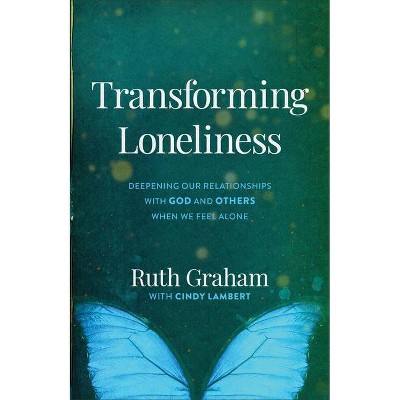Ethical Loneliness - by Jill Stauffer (Hardcover)

Similar Products
Products of same category from the store
AllProduct info
<p/><br></br><p><b> About the Book </b></p></br></br>Ethical loneliness is the experience of being abandoned by humanity, compounded by the cruelty of wrongs not being acknowledged. Jill Stauffer examines the root causes of ethical loneliness and difficult truths about the desire and potential for political forgiveness, transitional justice, and political reconciliation.<p/><br></br><p><b> Book Synopsis </b></p></br></br>Ethical loneliness is the experience of being abandoned by humanity, compounded by the cruelty of wrongs not being acknowledged. It is the result of multiple lapses on the part of human beings and political institutions that, in failing to listen well to survivors, deny them redress by negating their testimony and thwarting their claims for justice. <p/>Jill Stauffer examines the root causes of ethical loneliness and how those in power revise history to serve their own ends rather than the needs of the abandoned. Out of this discussion, difficult truths about the desire and potential for political forgiveness, transitional justice, and political reconciliation emerge. Moving beyond a singular focus on truth commissions and legal trials, she considers more closely what is lost in the wake of oppression and violence, how selves and worlds are built and demolished, and who is responsible for re-creating lives after they are destroyed. <p/>Stauffer boldly argues that rebuilding worlds and just institutions after violence is a broad obligation and that those who care about justice must first confront their own assumptions about autonomy, liberty, and responsibility before an effective response to violence can take place. In building her claims, Stauffer draws on the work of Emmanuel Levinas, Jean Améry, Eve Sedgwick, and Friedrich Nietzsche, as well as concrete cases of justice and injustice across the world.<p/><br></br><p><b> Review Quotes </b></p></br></br><br>Ethical Loneliness is a book well worth the read for those interested in transitional justice, violence, memory, and theories of non-sovereign subjectivity. Stauffer is a magnificently clear and thoughtful writer with a very strong authorial voice - a rare skill that is always a pleasure to come across.--Social and Legal Studies<br><br>The great contribution of Ethical Loneliness is that it challenges what it means to listen.--Doing Theory<br><br>A small book with immense breadth and insight into the difficulties of and harms incurred through the process of political reconciliation in the aftermath of atrocity.--APA Newsletter on Feminism and Philosophy<br><br>A superb book. The lessons it offers on how we fail to hear others' stories of suffering are vivid and wise.--No Foundations<br><br>One of the most interesting philosophical works that I have read in a long time. <i>Ethical Loneliness</i> positions itself in the literature on justice and demands that attention be paid to those who are abandoned in and through experiences of violence, oppression, and power.--Hypatia<br><br>Stauffer offers a profound way to think about ethics, not the ethics we want to have, that is, some above-the-fray determination of good and evil in all situations, but something far more human. Hers is an ethics based on the shared fact that the world is not safe and we do not have the assurances that we often turn to ethical systems for in the first place.--Perspectives on Politics<br><br>Stauffer practices and models philosophical listening, through her leveling of traditional philosophical authority, her embrace of specialists and nonspecialists alike, her critical attention to the particular echoes of ignorance in various discourses, her embrace and reinvigoration of a wide range of philosophical sources (from literary criticism to existential phenomenology), and ultimately, her attempts to listen to victims, perpetrators, and adjudicators of harm without presupposition.--Philosophy in Review<br><br>Stauffer's argument for the fundamental importance of listening is as much about today as it is about the past. This is a must read for oral historians and everyone who thinks attentive listening matters deeply.--In Context Journal<br><br>Stauffer's voice is singular, her style disarmingly direct. The text studiously refuses disciplinary conventions and idioms in order to appeal to the widest interdisciplinary audience.--Law, Culture and the Humanities<br><br>To deflate the power of law by pointing out how we have fetishized our relation to criminal justice, hoping that it could work as a magic bullet for the problem of harm, is perhaps the most important contribution of this book. . . . Repair is a collective effort which is to be renewed constantly and while the law can and should support this process, it cannot replace it.--Feminist Legal Studies<br><br><i>Ethical Loneliness</i> names and explores a dynamic of loneliness that forms the experience of being a citizen for many. It's an essential frame for understanding feelings of abandonment.--Claudia Rankine, author of <i>Citizen: An American Lyric</i><br><br>A timely book--rarely has the fecundity of the Continental approach to ethics been so clearly and persuasively on display.--Robert Bernasconi, Penn State University<br><br>Our relationship to our past is shifting, multiple, and emotive. In <i>Ethical Loneliness</i>, Stauffer builds on this dialogic conception of the self over time to develop a communicative theory of justice as a 'reparative' mode of giving the past its due. Lucid, attentive, and nuanced, this scintillating and surprising work installs a finely filigreed protocol of listening, a duty of hearing, in the heart of law.--Peter Goodrich, Cardozo School of Law<br><br>Stauffer involves us in ways of being and of being-together that are imperative yet elusive. And while a ready resolution is neither offered nor possible, the book itself is an absorbing vade mecum.--Peter Fitzpatrick, Birkbeck, University of London<br><br>Stauffer's book breaks through legalistic approaches to mass violence and oppression to uncover the conditions of the repair of lives and worlds in human interdependence. Her bold claims for widely diffused reparative responsibilities are built on close discussions of how together we author--or destroy--selves and worlds. Her impressive blending of contemporary events and philosophical reflection reveals the wide scope of responsibility that implicates us in the repair of others' suffering in ways we are usually glad to ignore or resist.--Margaret Urban Walker, Marquette University<br><br>To read <i>Ethical Loneliness </i>is to undergo the page-turning yet profoundly uncomfortable experience of struggling to hear the fractured stories told by survivors. Jill Stauffer's voice leads us carefully and thoughtfully through an unsettling hell of testimonies, showing us how difficult it is for us to linger in the discomfort of hearing about violent injustice without rushing through the ugly parts, forgetting the hard parts, dismissing the odd parts, straightening out the chronology, watering down the anger, denying the complicity, enforcing forgiveness or victimhood, whitewashing the ending, and missing what is not said and what cannot be put into words. This book, or rather, this experience of listening, is destined to become, like Elaine Scarry's <i>The Body in Pain</i>, a classic text in the field. It is really that good.--Linda Meyer, Quinnipiac University<br><p/><br></br><p><b> About the Author </b></p></br></br>Jill Stauffer is associate professor of philosophy and director of the concentration in peace, justice, and human rights at Haverford College. She is the coeditor with Bettina Bergo of <i>Nietzsche and Levinas: "After the Death of a Certain God"</i> (Columbia, 2008) and has published widely on issues of responsibility within and beyond legality.
Price History
Cheapest price in the interval: 60 on November 8, 2021
Most expensive price in the interval: 60 on December 20, 2021
Price Archive shows prices from various stores, lets you see history and find the cheapest. There is no actual sale on the website. For all support, inquiry and suggestion messages communication@pricearchive.us




















